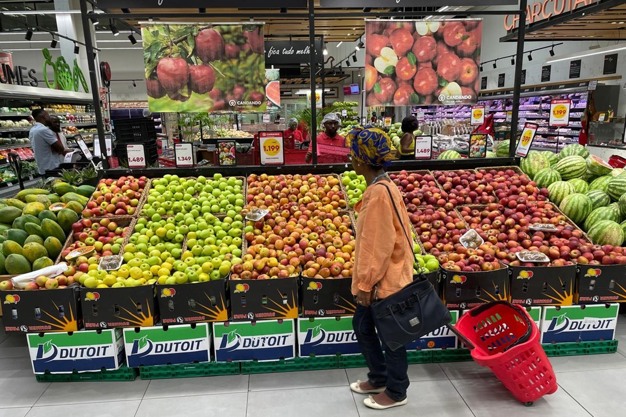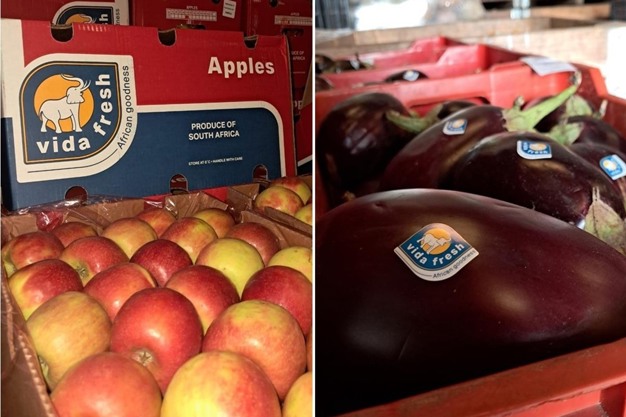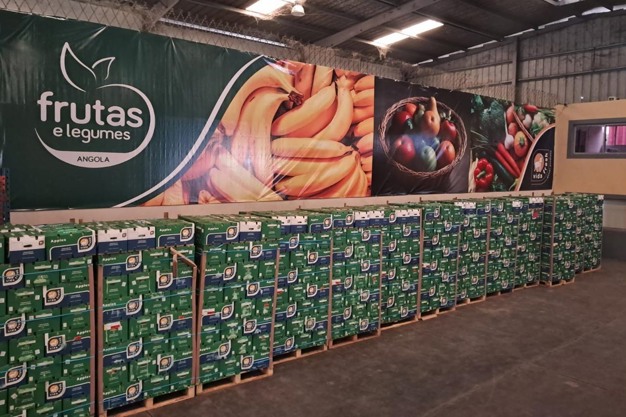 Ten years ago Angola introduced an import tax of 50% on fresh imports and the next year followed one of the three biggest declines in the price of crude oil since World War II, according to the World Bank. Angola is one of Africa's most oil-dependent countries: crude oil accounts for almost 29% of gross domestic product and 95% of exports, according to the African Development Bank.
Ten years ago Angola introduced an import tax of 50% on fresh imports and the next year followed one of the three biggest declines in the price of crude oil since World War II, according to the World Bank. Angola is one of Africa's most oil-dependent countries: crude oil accounts for almost 29% of gross domestic product and 95% of exports, according to the African Development Bank.
"The oil price crash in Q4 of 2015 was the reason for the market shrinking - the oil price more than halved, resulting in liquidity shortages for all imports," remembers Robert Meintjes of Alto Vida, Stellenbosch-based primary supplier of fresh produce to South African retailer Freshmark's 25 stores in Angola.
He credits the supermarket group's commitment. "We have been very fortunate to find a reliable customer in Shoprite and we see them of strategic importance to our long-term success."
South African plums, peaches and nectarines have now replaced Spanish fruit.
Table grapes for Angola are still sourced from the Northern Hemisphere because Angolans prefer the later Red Globe variety. He notes: "The price for early-season grapes is always high. The country has become very sensitive to price as a result of the high cost of imports."
Alto Vida supplies Freshmark with apples all through the year, 95% South African, topped up with East European apples per occasion towards the very end of the CA room season.
"Up to a decade ago it was common to export big volumes of high value and exotic fruits. Today there is only a small minority that can afford these luxuries. The average disposable income has weakened year-on-year over the past decade," he says. Standard Bank puts Angola's price inflation at 29%.
 South African apples in an Angolan Shoprite branch
South African apples in an Angolan Shoprite branch
"Glory years" before import tax
Meintjes calls the period prior to the import tax the "glory years", and even though they exported more in tonnage they owned a thinner slice of the market then.
Many importers left the Angolan fresh produce business in the decade since and at times it wasn't easy, he says, "but we stayed the course and we increased our market share. We are Africa-focused. We see ourselves as the solution to any looking for exposure to the African fruit trade."
As evident from their presence in Angola, Alto Vida doesn't shirk from "difficult markets". They supply fresh produce along the west coast of Africa, into Mali, Burkina Faso and Niger. A sizable amount of trade is with Indian Ocean islands like Maldives and Mauritius.
They call themselves the leading supply chain manager in Africa and pride themselves on taking the road less-travelled, he says. "We seek out the difficult markets, find a foothold and create a competitive advantage. Francophone West Africa is not an easy environment in which to operate," he remarks; it's easier on fruit than on vegetables, in which Europe has a strong foothold and transit time advantage.

Diversification drive
Angola came out of a five year-recession with a government strengthened in its resolve to reduce its dependence on crude oil through diversification, an approach favouring agriculture. Currently oil brings in over 55% of government revenue.
The drive to diversify is creating a lot of opportunities in Angola and Alto Vida has established its own banana farm north of Luanda to take advantage of the diversification drive.
However, he notes, with regards to retail sales it's evident that a re-alignment of the oil-dependent economy is made the more difficult by the reduced spending power of the population.
 Alto Vida has established its own banana farm north of Luanda
Alto Vida has established its own banana farm north of Luanda
UN estimates near 2.5billion people in Africa by 2050
Whereas Africa is more often than not an adjunct to the client portfolios of many fresh exporters, Alto Vida sets its sights a few decades ahead.
Africa's projected population growth - and specifically, the increase in mouths to feed - buttresses Alto Vida's business model. "I think more than 25% of the world population will be living in Africa by 2050."
Africa's population is now estimated by the United Nations at 1.5 billion, and expects it to be "close to 2.5 billion" in 26 years.
The impact from the predicted demographic shift making five African countries among the eight most populous in the world by 2050 has, he believes, the potential to change the world order.
 For more information:
For more information:
Robert Meintjes
Alto Vida
Tel: +27 21 852 5205
Email: [email protected]
https://www.altovida.co.za/
